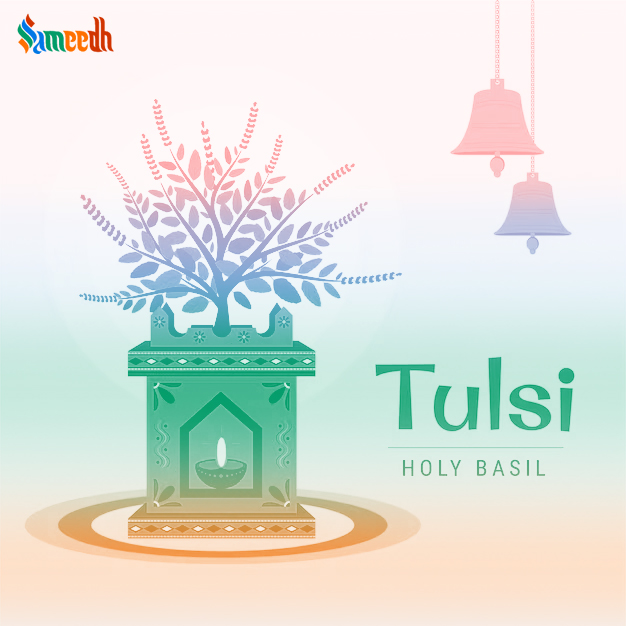In Hinduism, the Tulsi plant (Ocimum tenuiflorum) holds great significance and is considered sacred. It is commonly referred to as the holy basil plant and is revered for its medicinal properties as well as its spiritual and religious significance.

Why do Hindus worship Tulsi Plant?
In Hinduism, the Tulsi plant (Ocimum tenuiflorum) holds great significance and is considered sacred. It is commonly referred to as the holy basil plant and is revered for its medicinal properties as well as its spiritual and religious significance. Here are some reasons why Hindus worship the Tulsi plant:
- Divine association: According to Hindu mythology, the Tulsi plant is believed to be an incarnation of the goddess Tulsi or Vrinda. She is considered a devoted devotee of Lord Vishnu. It is said that Lord Vishnu resides in the Tulsi plant, and therefore, worshiping the plant is considered equivalent to worshiping Lord Vishnu.
- Purification and protection: The Tulsi plant is believed to have purifying properties. It is often planted near temples and homes to cleanse the surroundings and purify the air. It is also thought to ward off negative energies and evil spirits.
- Medicinal and healing properties: Tulsi has been used in Ayurvedic medicine for thousands of years due to its numerous health benefits. It is considered to have medicinal properties and is used to treat various ailments such as colds, coughs, digestive issues, and respiratory problems. Worshiping the Tulsi plant is seen as an acknowledgment of its healing properties and a way to seek blessings for good health.
- Ritual and religious ceremonies: The Tulsi plant plays a significant role in Hindu rituals and ceremonies. It is often used in prayers, pujas (ritual worship), and religious festivals. Tulsi leaves are considered sacred and are offered to deities during worship as a symbol of devotion and reverence.
- Symbolism: The Tulsi plant is associated with purity, devotion, and longevity. It is believed to be a symbol of divine presence and spiritual growth. Worshiping and caring for the Tulsi plant is seen as an act of devotion and a means of cultivating spiritual qualities.
Overall, the worship of the Tulsi plant in Hinduism is a reflection of the reverence for nature, the connection between humans and the divine, and the recognition of the plant’s spiritual and medicinal significance. It is a way to express devotion, seek blessings, and promote well-being in various aspects of life.